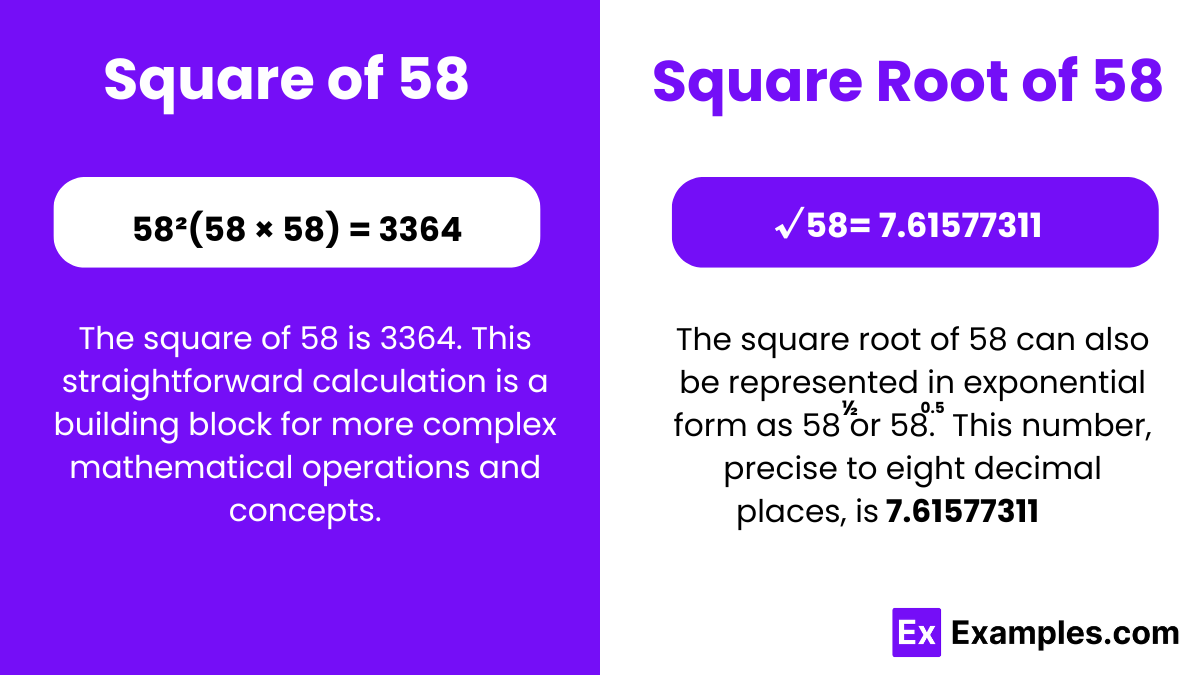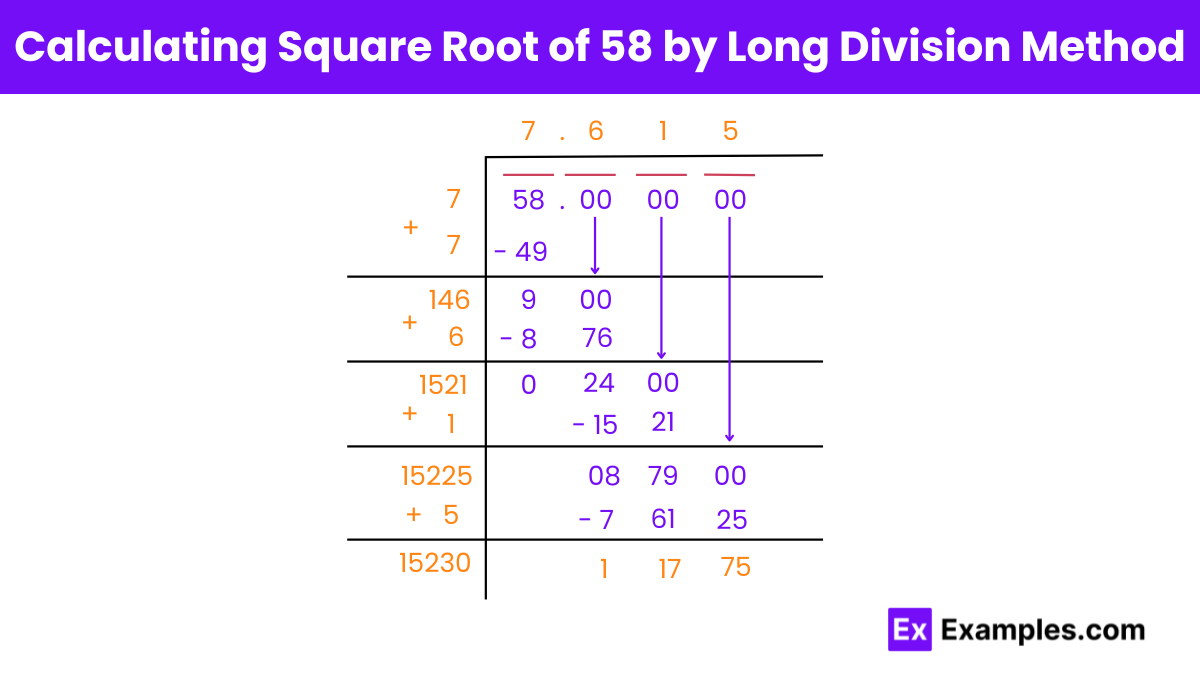If the square of a number is 58, what is the number?
7.63
7.62
7.61
7.60


In mathematics, especially within the domain of algebra, grasping the concepts of squares and square roots is essential. Squaring the number 58, by multiplying it by itself, results in 3364. This computation sheds light on the characteristics of whole numbers and serves as a foundation for probing into more intricate mathematical relationships and patterns. Engaging in such calculations is fundamental for deepening our understanding of advanced mathematical concepts and theories.
58²(58 × 58) = 3364
The square of 58 refers to the result of multiplying the number 58 by itself. Mathematically, this is expressed as 58×58. Squaring a number is one of the fundamental operations in arithmetic and algebra, serving as a key concept for developing more complex mathematical ideas. When you square 58, you obtain 3364. This calculation helps illustrate properties of exponents and powers, which are crucial for understanding advanced topics in mathematics such as quadratic equations, power functions, and polynomial identities.
√58= 7.61577311
Or
√58= 7.615 Upto 3 decimals
The square root of 58 refers to the number that, when multiplied by itself, results in 58. Mathematically, this is expressed as √58. The exact square root of 58 is an irrational number, meaning it cannot be expressed as a simple fraction, and its decimal representation continues indefinitely without repeating. This concept is central in various branches of mathematics, including algebra and geometry, where understanding square roots is crucial for solving equations and calculating dimensions. The square root of 58, approximately 7.61577311, is particularly useful in real-world applications where precise calculations are necessary, such as in engineering and physics.
Square Root of 58: 7.61577311
Exponential Form of 58: (58)¹/² or (58)⁰.⁵
Radical Form of 58: √58
The square root of 58 is irrational number
No, the square root of 58 is not rational. Rational numbers are those that can be expressed as the ratio of two integers (where the denominator is not zero). The square root of 58, being an irrational number, does not meet this criterion as it cannot be precisely written as a simple fraction and its decimal expansion is non-terminating and non-repeating.
Yes, the square root of 58 is irrational. Irrational numbers are defined by their non-terminating, non-repeating decimal expansions, which cannot be accurately represented as fractions. Since 5858 does not result in a neat, fractional value and its decimal continues indefinitely without repeating, it is classified as irrational.
Finding the value of the square root of 58 involves a few methods. Here are a couple of common ones:

Finding the square root of 58 by long division method involves a series of steps. Here’s how you can do it:
No, 58 is not a perfect square
No, 58 is not a perfect square. A perfect square is a number that can be expressed as the product of an integer with itself. For example, 25 is a perfect square because it can be expressed as 5×5. However, 58 cannot be expressed as the product of an integer with itself, so it is not a perfect square.
The square root of 58 is useful in various mathematical and scientific calculations, particularly in geometry, physics, and engineering. It represents the length of one side of a square with an area of 58 square units.
The square root of 58 rounded to the nearest whole number is 8.
The square root of 58 would be represented on a number line approximately between 7 and 8, closer to 8.
The square root of 58 is greater than the square root of any perfect square less than 58 and less than the square root of any perfect square greater than 58.
Text prompt
Add Tone
10 Examples of Public speaking
20 Examples of Gas lighting
If the square of a number is 58, what is the number?
7.63
7.62
7.61
7.60
What is the square of the square root of 58?
58
59
60
61
If the square of a number is 58, what is the number?
7.62
7.63
7.61
7.64
Find the value of √58 plus 2.
9.61
9.65
9.63
9.67
Find the square of √58 + 1.
72.52
74.64
72.36
72.16
What is the square root of 58 times 4?
30.46
30.47
30.48
30.46
Calculate √58 × √58 + 10.
68
69
70
71
What is the square of 58 − 1?
54.28
54.36
54.14
54.44
Find the square root of 58 divided by 2.
3.81
3.85
3.79
3.83
What is the square of 2 × √58?
230
232
234
236
Before you leave, take our quick quiz to enhance your learning!

